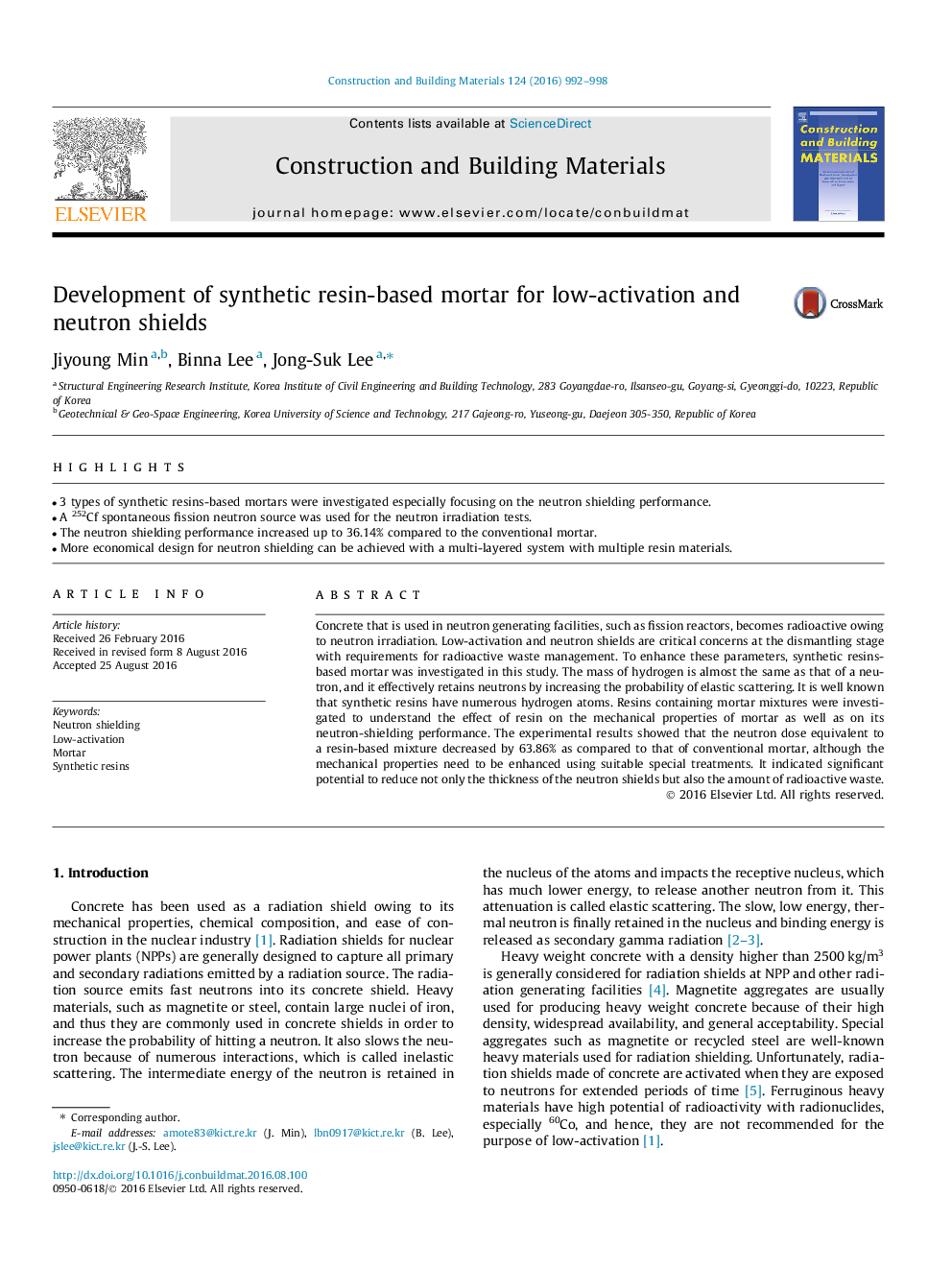| Article ID | Journal | Published Year | Pages | File Type |
|---|---|---|---|---|
| 6718122 | Construction and Building Materials | 2016 | 7 Pages |
Abstract
Concrete that is used in neutron generating facilities, such as fission reactors, becomes radioactive owing to neutron irradiation. Low-activation and neutron shields are critical concerns at the dismantling stage with requirements for radioactive waste management. To enhance these parameters, synthetic resins-based mortar was investigated in this study. The mass of hydrogen is almost the same as that of a neutron, and it effectively retains neutrons by increasing the probability of elastic scattering. It is well known that synthetic resins have numerous hydrogen atoms. Resins containing mortar mixtures were investigated to understand the effect of resin on the mechanical properties of mortar as well as on its neutron-shielding performance. The experimental results showed that the neutron dose equivalent to a resin-based mixture decreased by 63.86% as compared to that of conventional mortar, although the mechanical properties need to be enhanced using suitable special treatments. It indicated significant potential to reduce not only the thickness of the neutron shields but also the amount of radioactive waste.
Related Topics
Physical Sciences and Engineering
Engineering
Civil and Structural Engineering
Authors
Jiyoung Min, Binna Lee, Jong-Suk Lee,
